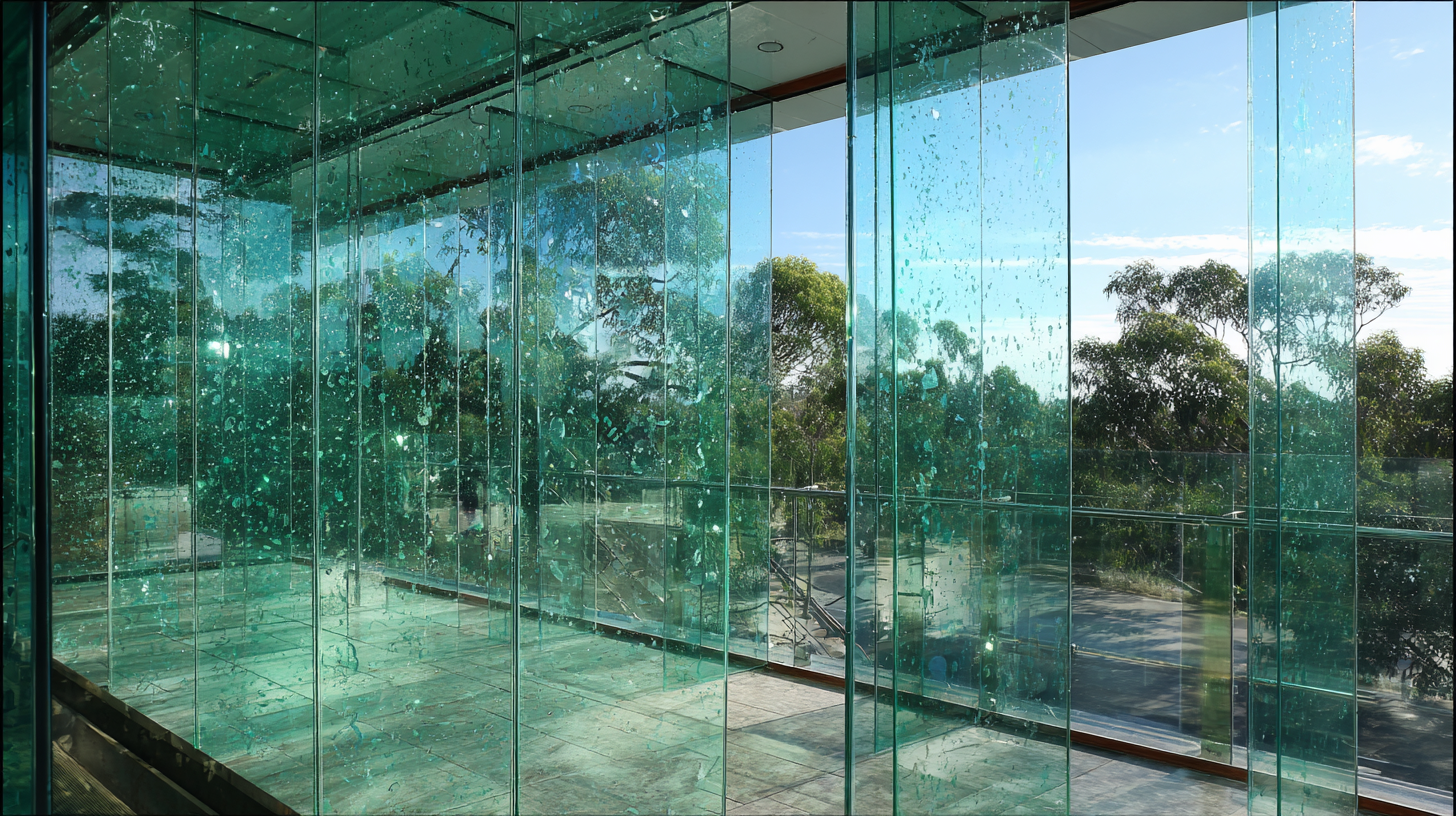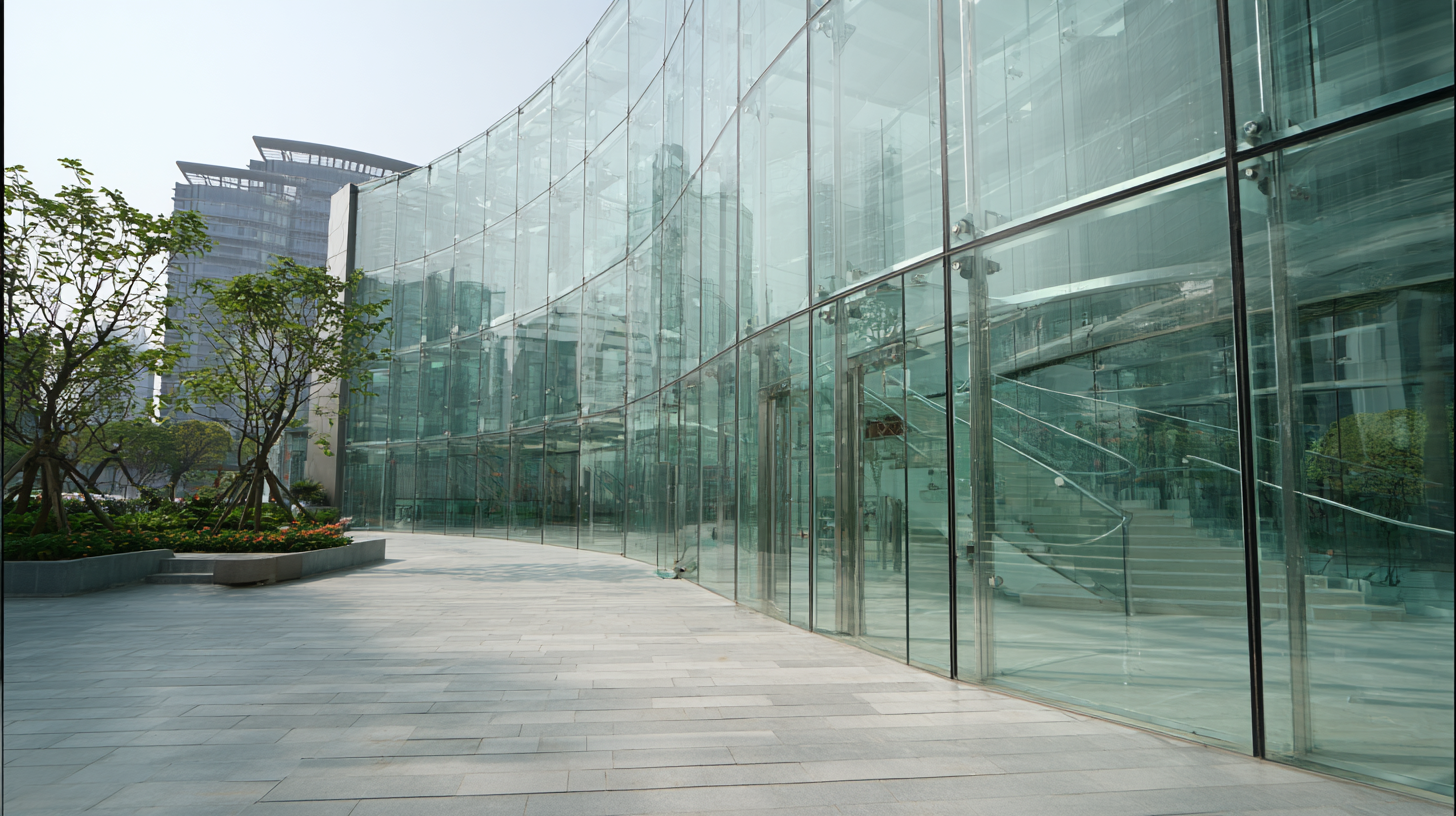
In recent years, the demand for innovative building materials has surged, with self-cleaning glass emerging as a frontrunner in the market. According to a report by Market Research Future, the global self-cleaning glass market is expected to reach USD 2.33 billion by 2023, driven by increasing consumer preferences for eco-friendly and low-maintenance solutions. This cutting-edge product leverages advanced nanotechnology to create a hydrophilic surface that significantly reduces the accumulation of dirt and grime. With an emphasis on durability and aesthetic appeal, it offers an unmatched quality that is essential for both residential and commercial applications.

In this blog post, we will explore the best self-cleaning glass options available, highlighting the leading manufacturers from China who are setting the benchmark for excellence in this dynamic industry.
In recent years, China's self-cleaning glass manufacturing techniques have advanced remarkably, establishing the country as a leader in this innovative sector. According to a report by ResearchAndMarkets, the global self-cleaning glass market size was valued at approximately USD 7.4 billion in 2022 and is projected to expand at a CAGR of 24.6% from 2023 to 2030. This is indicative of increasing demand driven by the growing emphasis on sustainability and maintenance reduction in both residential and commercial constructions.
Chinese manufacturers have embraced cutting-edge technologies to enhance the performance and durability of self-cleaning glass. Techniques such as Nano-coating and photocatalytic processes are pivotal in this innovation. A research study published in the Journal of Industrial Chemistry notes that these coatings break down organic materials when exposed to UV light, effectively utilizing natural sunlight to maintain glass clarity. Moreover, stringent quality standards established by the China National Standard for Building Glass assure that products not only meet but exceed international benchmarks, ensuring reliability and customer satisfaction in diverse applications.
The evolution of self-cleaning glass has been remarkable, driven by the rapid advancements in technology and increasing consumer demand for sustainable solutions. Early versions of self-cleaning glass utilized a simple double-layer coating that utilized UV light to break down dirt and grime. However, recent innovations have introduced advanced photocatalytic and hydrophilic coatings that enhance cleaning efficiency and longevity. These modern coatings react with sunlight to decompose organic contaminants, while their surface properties allow water to spread evenly and wash away residues effortlessly.

In parallel with these technological trends, industries are exploring the use of self-cleaning glass beyond traditional applications. Architects and builders are incorporating self-cleaning features in commercial and residential buildings, providing a practical response to urban pollution and maintenance challenges. Furthermore, there is a burgeoning interest in smart glass technology, where self-cleaning mechanisms can be combined with energy-efficient features such as temperature regulation and enhanced insulation. This convergence of self-cleaning and smart technologies signals a bright future, promising solutions that not only minimize upkeep but also contribute towards greener, more sustainable living environments.
When evaluating self-cleaning glass products, performance and longevity are two of the most critical factors to consider. According to a report by the National Glass Association, self-cleaning glass can exhibit a reduction in dirt accumulation of up to 90% compared to traditional glass. This significant difference is attributed to advanced coatings that utilize photocatalytic and hydrophilic technologies, enabling the glass to break down organic matter in sunlight and wash away debris with rainwater.
In terms of longevity, a study from the Glass and Glazing Federation found that high-quality self-cleaning glass maintains its effectiveness for over 10 years when properly installed and maintained. This lifespan is favorable when compared to standard glass, which may require frequent cleaning and replacement, leading to higher long-term costs.
Furthermore, manufacturers like those in China's leading factories are producing self-cleaning glass with enhanced durability, backed by rigorous testing that often exceeds international standards, ensuring that customers invest in a product that not only performs well but also lasts.
When it comes to self-cleaning glass, quality assurance in the manufacturing process is paramount. Leading factories in China adhere to stringent industry standards to produce glass that not only meets but exceeds expectations. These standards cover everything from raw material selection to the final inspection, ensuring that every piece of glass is durable, effective, and safe for consumers. By understanding these standards, buyers can make informed decisions and invest in products that truly offer unmatched quality.
Tip: Always ask for certifications when purchasing self-cleaning glass. Reputable manufacturers should provide documentation that demonstrates compliance with industry standards.
In addition to certifications, expert insights suggest that assessing the factory's experience can be a valuable indicator of quality. Established factories often have a track record of successful production and a deep understanding of the nuances involved in glass manufacturing. This experience translates to better quality control and innovative solutions in self-cleaning technology.
Tip: Consider visiting the factory or looking for customer testimonials. Firsthand experiences can offer great insights into the reliability and performance of the products offered.

When it comes to choosing self-cleaning glass solutions, it’s essential to consider a few key factors to ensure you’re making the right investment for your needs. First, check the technology that the self-cleaning glass employs. The most reliable options typically utilize a photocatalytic coating that reacts with sunlight, breaking down organic dirt and allowing rainwater to wash it away effortlessly. Understanding the technology can help you select a product that not only promises convenience but also delivers optimal performance over time.
Another crucial aspect to consider is the manufacturer’s reputation. Researching leading factories in China that specialize in self-cleaning glass can provide insights into their quality standards and customer satisfaction. Look for companies that offer transparency about their manufacturing processes, certifications, and customer reviews. A trustworthy manufacturer will also have a responsive customer service team ready to address any questions or concerns. By focusing on these elements, you can confidently choose self-cleaning glass solutions that enhance both the aesthetics and maintenance of your property.